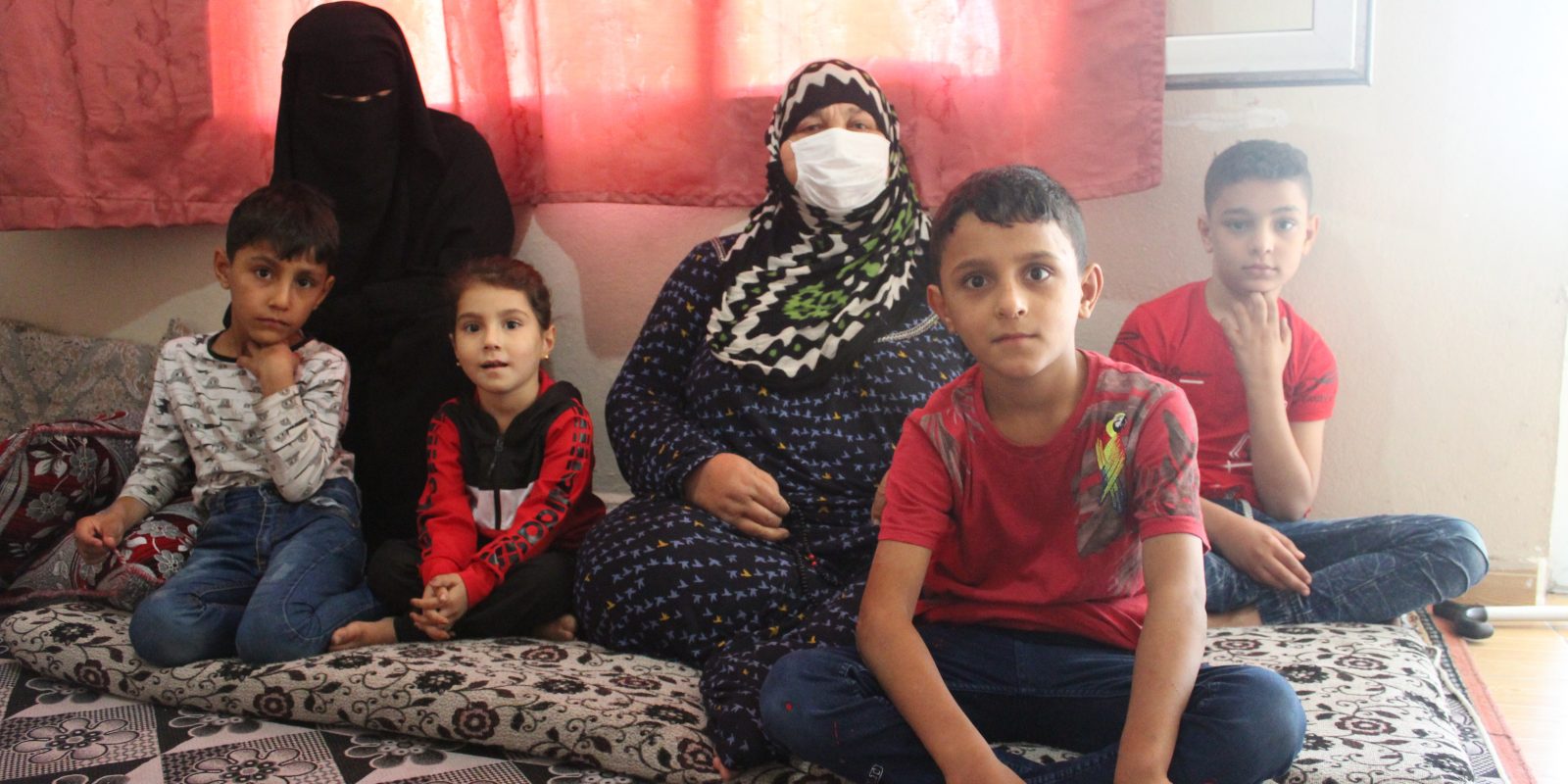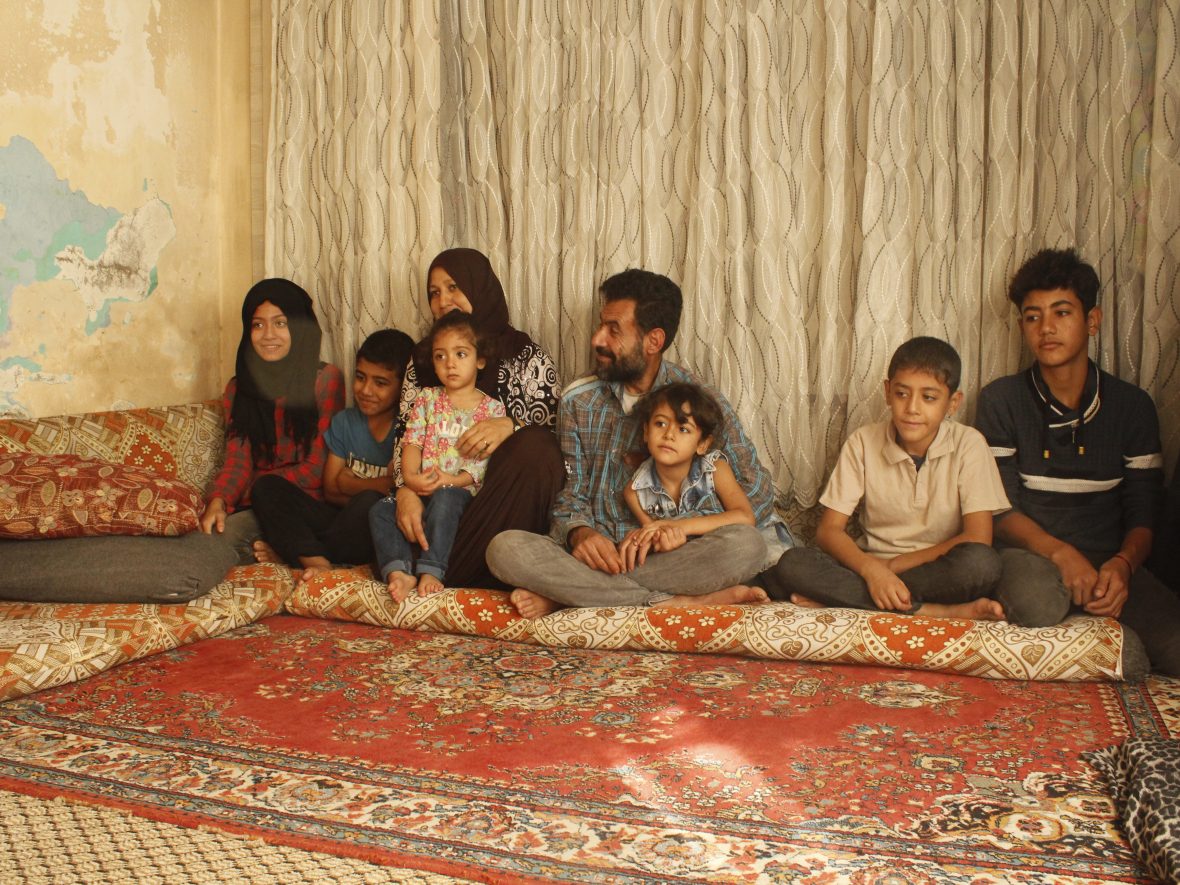News
Five unique challenges facing refugee children around the world
While there are risks and challenges for all refugees, living an uprooted life has unique impacts on the 11 million refugee children living in displacement today.
Read MoreAmong the many challenges unique to refugee children, there are questions around education, psychological well-being during and in the wake of traumatic events, and the overall question of how to support a family in uncertain circumstances.
It says something about how highly valued mothers are in Syrian society that Mother’s Day is a public holiday in the country. (As the granddaughter of a Syrian refugee, I can personally vouch for this level of importance.) But for the millions of Syrian refugees living in host communities, including over 3.6 million in neighboring Turkey, even the best mothers end up navigating a difficult journey through parenthood.
Among the many challenges unique to refugee children, there are questions around education, psychological well-being during and in the wake of traumatic events, and the overall question of how to support a family in uncertain circumstances. With the highest global refugee population on record, this means that much of our response to this crisis of displacement is focused on ensuring that the youngest refugees don’t become a lost generation. With funding from the Department of State’s Bureau of Population, Refugees, and Migration (BPRM), Concern has redoubled its efforts to ensure that Syrian children have access to the support they need to live full, creative lives — even if they’re far from home.
Concern’s Caregiver Engagement (CGE) program empowers parents and caregivers to create a positive learning environment at home to support their children’s academic, social, and personal development.
Aligning environments in the classroom, at home, and within the community creates a much-needed layer of support for children living in displacement. Two families came to CGE through our other BPRM-supported Education programs in the community.
For Khadija*, a 37-year-old mother of seven, it was a member of her community that initially told her about the CGE program. Khadija came to Turkey with her children four years ago, while her husband stayed in Syria to care for his mother.
“My children and I worked in agriculture to harvest crops and pack vegetables,” she explains of the challenging first few months. “Eventually we were able to save some money and with this money, we moved to Urfa city center and rented a house.”
After six months, Khadija’s husband was able to join the family, along with his mother. But their children continued to work in order to earn money for food, clothing, bills, and other basic needs for a family of 10. On her way home from the grocery store one day, Khadija saw some strangers leaving her neighbor’s house.
“After they left, I was curious and asked my neighbor about them. She said they were from Concern, from the Education team, and that they provide help to children who are out of school and who work. I took the contact number from her and after a few days they visited us. They supported us so my children could go back to school.”
After enrolling her children in Concern’s Fighting Child Labor through Education program, Khadija was approached about joining our program for caregivers. She was less excited about this. “Frankly, I did not expect to benefit, even though the Concern staff member introduced the program very simply,” she says. “I didn’t believe that this program will change the behavior of my children.”
Two other CGE participants, Dina* (39) and Mustafa* (44), had similar misgivings. They arrived in Turkey five years ago with their six children, landing in Urfa after the last refugee camp they had been living in closed in 2019.
“When we came to Urfa, our situation was very difficult due to the high cost of living,” Dina adds. “I heard from my neighbor that there is an organization that provides assistance to school-aged children so they can continue to go to school.” This was especially useful for Dina, as the new school administration had asked her to provide school uniforms for her children, a very expensive request for six children. She requested support from Concern’s Education Access Fund, which gave her children the uniforms they needed to enroll in school.
Later, a member of the CGE team followed up with Dina and Mustafa and asked if they would be interested in the CGE program. “We expected the program to be normal, general information we had heard before,” Dina says.

“I did not miss any session,” Khadija says, “I participated in the discussions with my group, and I enjoyed the ideas that I heard about how to deal with children’s difficult behaviors and build their skills in a positive way, caring for them and teaching them in a way that makes sense for their age.”
Concern’s focus on the Caregiver Engagement program isn’t to share the normal, general information that parents such as Dina, Mustafa, and Khadija know. With an approach that is tailored to the unique circumstances of parenting in displacement, CGE is more like an extension of skills that help parents approach raising a family in a “new normal” and finding ways of connecting with their children, meeting not only their practical needs, but also their emotional and psychological needs. With groups like Khadija’s, the program also becomes a way of building community among parents raising children in similar age groups in similar locations.
In this way, the facilitators become partners versus “teachers” or “experts.” For Dina and Mustafa, they felt the benefits of this relationship very quickly — and especially appreciated their facilitator’s demeanor. “The facilitator was so calm!” Mustafa laughs. “And diplomatic. He related to us and communicated with us in an appropriate way.”

Khadija enjoyed the sessions about understanding adolescents, which she says helped her to realize how older children were different than her younger children — especially when it comes to their emotional needs. “My life has completely changed,” she adds. “The house has become more disciplined and tidy, but I am also playing with my children more.”
For Dina, a session on positive parenting had “a great impact on our family life. We changed how we interacted with our children; it has become more positive and conversational.” Mustafa agrees, adding: “I have used many of the strategies we discussed, including the reward for positive behavior, which we used with all our children, even though they are different ages.”
With social distancing efforts introduced in Turkey in March of 2020, CGE pivoted into virtual groups and support, with sessions run via phone and WhatsApp. Parents and caregivers have received weekly activity ideas for their families, tailored to the ages of their children, and designed to be done with whatever materials they may have in the home. Parents could also send in photos or videos of their children participating in the activities for feedback and support from Concern’s facilitators.
“I thought the communication by phone was a good thing,” says Khadija. “I didn’t have to go far [to attend the trainings], and the rest of the family could attend the sessions with me.” Khadija took advantage of the home-learning environment and involved her husband and children in the sessions. Active listening and dedicated time to play together have been two of Khadija’s favorite strategies for adjusting to yet another “new normal” in the pandemic.
"It’s become normal for us to discuss things with our children, to play with them every day." — Dina*, Caregiver Engagement program participant
Dina and Mustafa have had a similar experience of not only remaining in the CGE program during the pandemic, but also sharing it with more members of their community: “We found that attending the sessions over the phone gives an opportunity for our children, neighbors or friends to listen, which is a good thing,” says Mustafa (who, along with Dina, dedicated a larger space in their home as a play area).
“The children are now keen to make us understand their behaviors,” Dina adds, noting that she also shared information with family members and encouraged them to find similar sessions in their areas.
“It helps to find solutions to problems you face with your children, developing their skills and abilities, and developing their personalities,” she says. “It’s become normal for us to discuss things with our children, to play with them every day,” Dina adds. “We spend time together. We hope we can continue the positive change that has happened to our family, to our children.”
Spoken like a parent who deserves a public holiday.
Concern Worldwide has been responding to the crisis in Syria since 2013. Last year, our programs in the country’s northeastern region reached almost 290,000 extremely vulnerable people with food vouchers, temporary employment, and small business grants (as well as other interventions). We also addressed problems of access to safe, affordable, and reliable supplies of water by rehabilitating six water stations and eight water networks—which support a total of 204,000 people. Similar water rehabilitation in northern Iraq last year reached nearly 117,000 people.
Additionally in 2023, Concern responded within hours to the February 6 earthquake, distributing emergency supplies and providing psychosocial support. One year later, we continue to work with these communities in northwestern Syria on the long-term recovery efforts.
Outside of Syria, our work in Lebanon and Iraq is focused on working with both Syrians and locals in host communities. In Lebanon, which hosts the largest number of refugees in the world by capita, we’ve responded to the country’s worst socioeconomic crisis in decades. Part of this response includes a two-year livelihoods program aimed to increase employment and income-generating opportunities for the most vulnerable households. Recently completed, the program enrolled over 2,000 people.